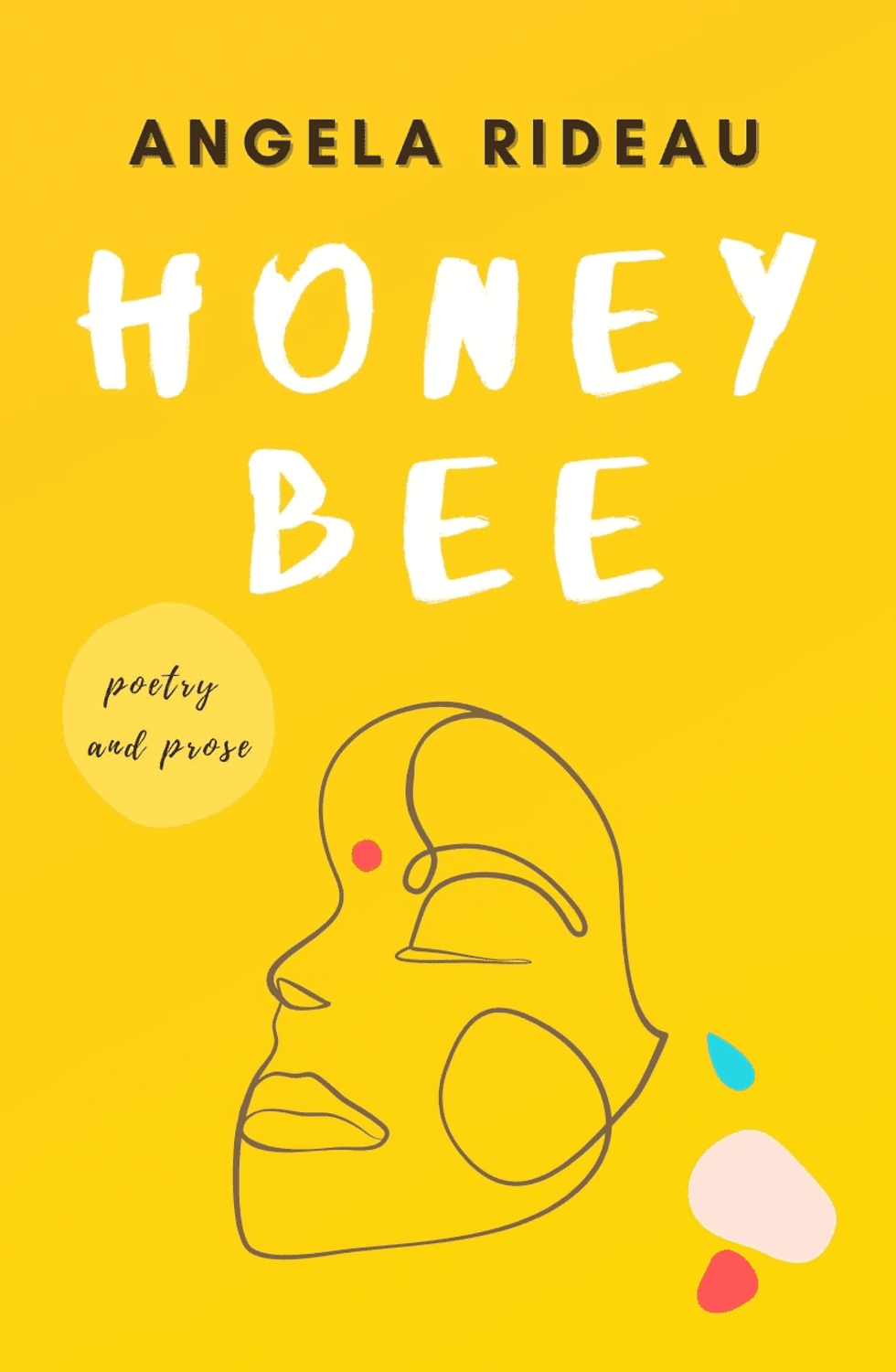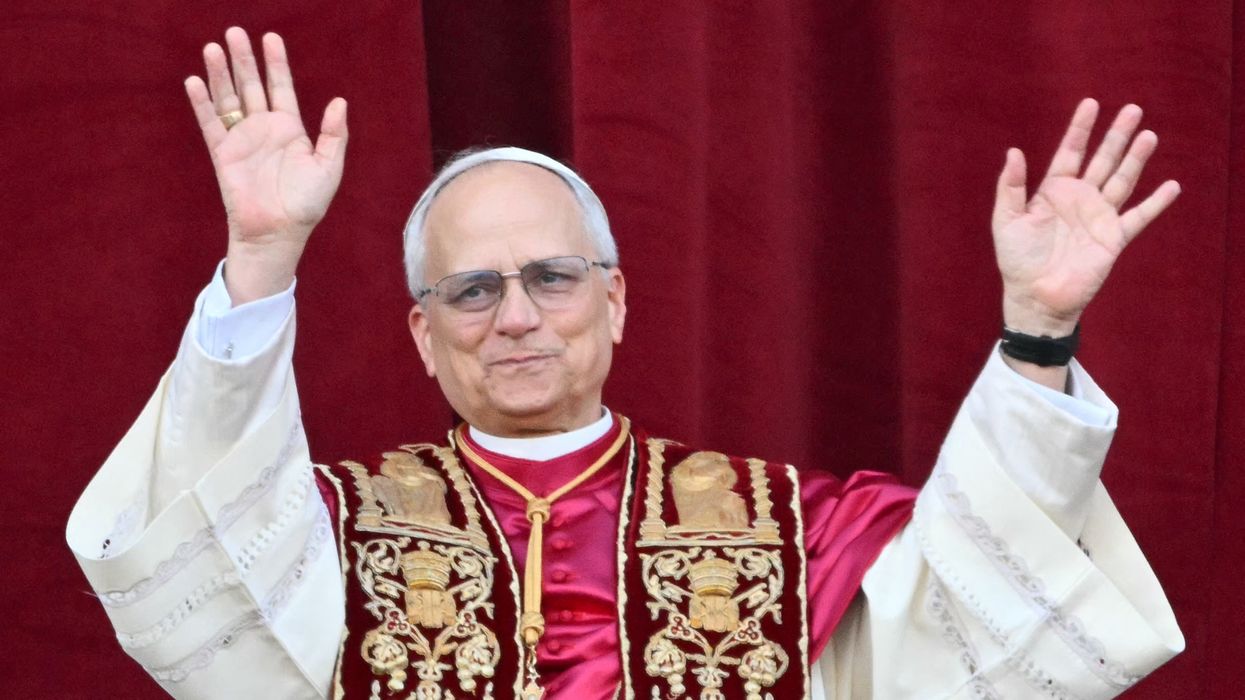SPOKEN word poet, author and podcaster Angela Rideau has used the power of words to form different connections with diverse audiences. She continued that creative journey with her debut poetry collection Honey Bee, which is a beautiful book that explores trauma, identity, growing up within the South-Asian diaspora, healing, and femininity.
Royalties from the thought-provoking book covering relatable themes are going towards Tommy’s, which is the largest UK pregnancy and baby loss charity. Eastern Eye caught up with the cool British Asian creative, who has more projects on the way, including a spoken word album, to discuss her beautifully written book and the themes it covers. She also gave advice for aspiring poets.
What inspired you to write a book of poetry that explores themes of heritage, hurting, resilience, and healing?
I wanted to take readers on a journey, so each chapter tells a different story, representing life stages, and exploring various taboos.
What role does poetry play in your life, and how does it help you to navigate complex emotions and experiences?
Poetry is meditation and a cathartic release. It gives me the freedom to step into areas of my life, where I can connect with myself in my purest element.
In your book, you mention trying to decolonise your thoughts and heart from coercive frameworks. Can you explain what this means?
Certain cultural norms have dominated our thoughts and behaviour patterns and have been inherited without question. This is about empowering people to challenge and reshape the narrative and check our unconscious biases, particularly on topics such as gender equality, caste systems and our relationship with beauty standards and where they come from. It is ultimately about healing scars carried over from generation to generation to question ‘What kind of world do we want to leave behind?’.
Your book covers taboo topics such as body image, trauma, abuse, caste. Was it difficult to write about these topics and how did you approach them?
Sharing puts you in a vulnerable place, and can be a source of shame, especially in South Asian communities. But my thinking was that shame isolates you and only empowers the abuser or the dominant hierarchical systems. These conversations are bigger than any individual, and while difficult to discuss, bringing the footnotes to the forefront starts a dialogue about how we can educate to collectively create change.
How did your upbringing as a brown girl in the South Asian diaspora shape your perspective and influence as a writer?
In Indian literature and mythology, I saw women depicted as powerful goddesses, but soon realised that there was a disparity in how women are portrayed in everyday life. My poetry references powerful Hindu goddesses that are celebrated for being fierce and I see this as a standard of strength to aspire towards. Sisterhood and feminism are strong themes in my book, so this shaped my writing and influenced the title Honeybee, as honeybees work collectively in a colony.
Are there any poems in Honeybee that were especially difficult or meaningful to write?
There are many controversial topics throughout the book. Each poem was a part of my soul that I shared because they are my true experiences, be it about domestic violence, abuse, trauma, and loss. It felt like ripping a band-aid off the parts of our culture that we are too shy to address.

How do you hope readers will connect with and be impacted by the poems in Honeybee?
I hope they find hope and empathy in my words. I hope it will empower them to start conversations.
What message do you hope to convey to readers about the importance of exploring and celebrating cultural heritage?
Find elements in your culture to celebrate - even in the smallest elements. Celebrate differences because our differences are what make us unique. There is no shame in being different.
Tell us about the themes of resilience and healing in your poetry, and how it might offer hope to readers struggling with their own challenges?
We are all energy; we love and carry pain. But it is up to us to decide what to do with that pain - explode like a bomb and destroy everything or light up the sky like fireworks, spreading joy. I did this when I shared my first poem about the pain of baby loss during lockdown. My experiences have taught me how to seek out the light and that is my message in this book. A hope to change that energy and pain into something positive.
How do you approach crafting a poem?
I don’t have a particular technique or rules I stick to and am still learning. My poetry is very visual but as a spoken word poet, I do perform my poetry aloud and change it from ‘for the page’ to ‘for the stage’.
What advice would you give to aspiring poets?
Once you’ve found your voice - find your tribe. Listen to, learn from, and seek help from other creatives. Most importantly, ‘stand in your truth’.
What are the challenges you faced in publishing Honeybee and how did you overcome them?
For someone new to the publishing world, the learning curve was steep. Imposter syndrome sets in, but you can’t always aim for perfection as it can cripple creativity. Also, I wanted to provide illustrations that capture the essence of my poetry authentically and in doing so I was lucky to work with an Indian graphic designer who is also a poet.
Royalties for Honeybee will go to Tommy’s, what does it mean to you to support the charity?
I would like to support their work in campaigning, educating, and helping families going through baby loss. This is my way of contributing to say I see you and I thank you.
Are there any other projects you are currently working on that you would like to share with our readers?
I'm working on a Spoken Word Poetry album which fuses beautiful eastern instruments with poetry.
www.angelarideau.com


















 Sid Sagar
Sid Sagar
